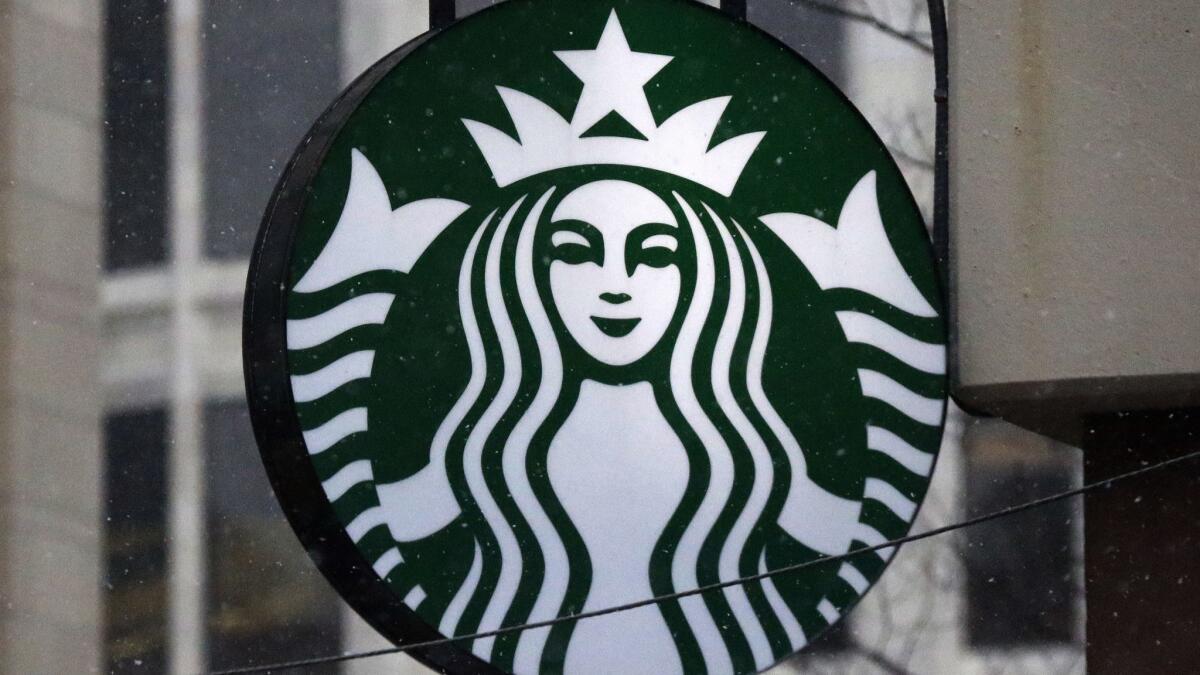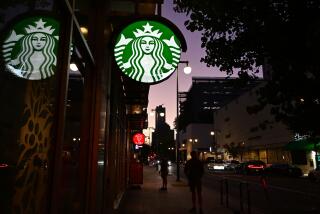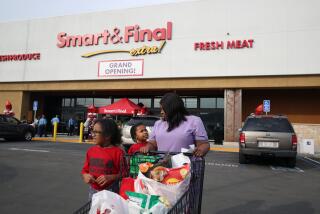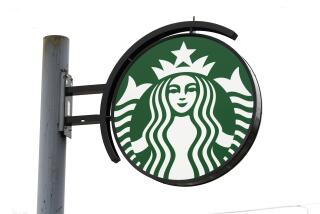New Starbucks policy: No purchase needed to use restrooms or sit in cafes

Medical emergency, burglary and physical assault: These are a few instances in which Starbucks is now saying employees should call 911.
The guidelines are a part of Starbucks’ new policy allowing customers to use restrooms and sit in cafes and patios even if they do not make a purchase. The approach lays out specific steps for how employees respond to and address disruptive customer behavior. Underlying the rules is the expectation that customers use company spaces as intended and be considerate of others; specifically, they should refrain from smoking or drinking alcohol, panhandling or sleeping.
The new guidelines come about a week before Starbucks will close 8,000 stores for mandatory unconscious bias training for 175,000 employees on May 29. Starbucks announced the training in the wake of the arrests of two young black men at a Philadelphia Starbucks who arrived early for a business meeting. They did not make a purchase immediately after arriving, and a white manager called the police.
Previously, Starbucks did not have clear guidelines on what to do about customers who did not make purchases, often leaving decisions up to individual managers. A Starbucks spokesperson previously said that at the Philadelphia location where Rashon Nelson and Donte Robinson were arrested, “the guidelines were that partners must ask unpaying customers to leave the store, and police were to be called if they refused.”
In a letter to employees Friday, Rossann Williams, Starbucks’ executive vice president and president of U.S. retail, wrote that the company consulted Starbucks workers, government officials, community leaders and experts on unconscious bias in forming the new rules. Key to the policy was the conclusion that everyone who enters a Starbucks is considered a customer and is “welcome in our spaces.”
But Williams acknowledged that no policy or procedure can account for every situation.
“We know that every day in our stores, you and your partners lead through unexpected, complicated situations including challenging social issues and, at times, disruptive customer behaviors,” Williams wrote.
The procedure identifies eight examples of when employees should call 911, including gas leak or fire, robbery, threat of violence, use or selling of illegal drugs and destruction of store property.
The guidelines also lay out a three-step model for addressing disruptive behavior.
First, employees are instructed to assess a customer’s behavior rather than the person alone. Disruptive or harmful behavior identified by Starbucks includes being unreasonably noisy, viewing inappropriate media, verbally abusing people, making unwanted sexual advances and indecent exposure.
Employees should then consider how any decision they make will affect the customer’s experience. That includes judging whether the customer or situation is safe to approach, and whether an employee’s chosen response would be the same for any customer in the same circumstance.
Employees who are unsure how to handle a situation should get help from a store or district manager.
When taking action against disruptive behavior, employees are told to ask another employee to “observe and verify” the behavior. Employees are told to introduce themselves to the disruptive customer and ask for the person’s name, “listen actively, use a calm tone and respectfully request that they stop the disruptive behavior.”
“If the situation becomes unsafe, call 911,” the procedure says.
This month, Nelson and Robinson each reached a symbolic $1 settlement with the city of Philadelphia and asked the city to fund $200,000 for a grant program for high school students aspiring to become entrepreneurs.
The men also reached an undisclosed financial settlement with Starbucks, “as well as continued listening and dialogue between the parties.”
Siegel writes for the Washington Post.






